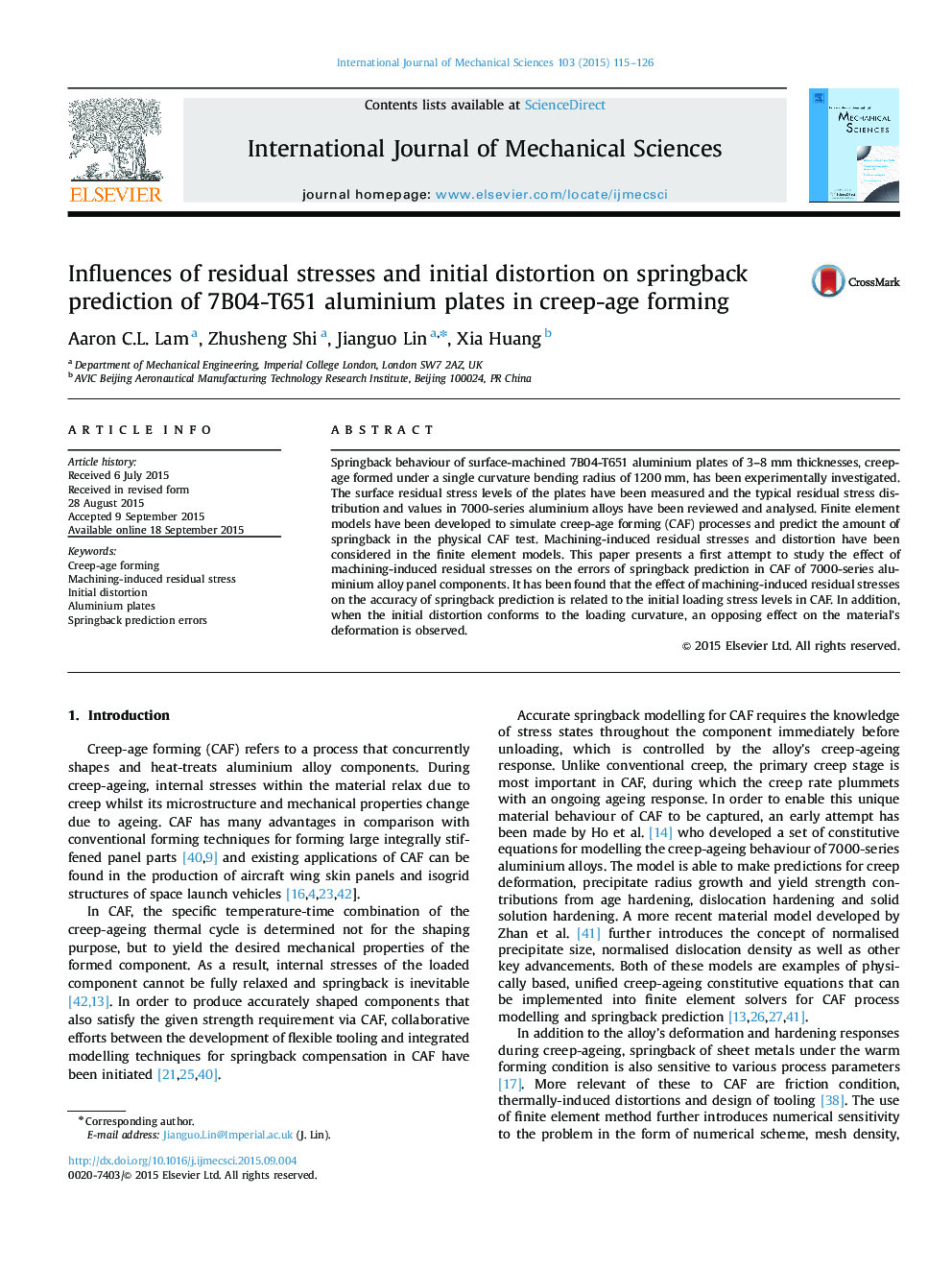| Article ID | Journal | Published Year | Pages | File Type |
|---|---|---|---|---|
| 785671 | International Journal of Mechanical Sciences | 2015 | 12 Pages |
•Identified the major reason in springback prediction errors in CAF of thin panel parts.•The effect of machining-induced residual stresses on CAF springback quantified.•Springback prediction errors decline with increasing initial loading stresses.•Initial distortions can have opposing effects on deformation in CAF.
Springback behaviour of surface-machined 7B04-T651 aluminium plates of 3–8 mm thicknesses, creep-age formed under a single curvature bending radius of 1200 mm, has been experimentally investigated. The surface residual stress levels of the plates have been measured and the typical residual stress distribution and values in 7000-series aluminium alloys have been reviewed and analysed. Finite element models have been developed to simulate creep-age forming (CAF) processes and predict the amount of springback in the physical CAF test. Machining-induced residual stresses and distortion have been considered in the finite element models. This paper presents a first attempt to study the effect of machining-induced residual stresses on the errors of springback prediction in CAF of 7000-series aluminium alloy panel components. It has been found that the effect of machining-induced residual stresses on the accuracy of springback prediction is related to the initial loading stress levels in CAF. In addition, when the initial distortion conforms to the loading curvature, an opposing effect on the material’s deformation is observed.
